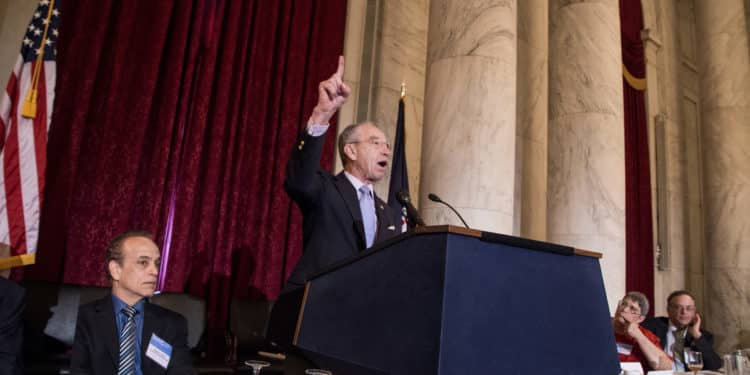On December 22, Senator Chuck Grassley (R-IA) wrote an op-ed calling on courts to uphold precedent and preserve the False Claims Act (FCA) in light of recent attacks on the law’s qui tam whistleblower provisions.
“The FCA is our nation’s primary weapon against fraud, and it has been amended by Congress and reaffirmed by the courts throughout our history,” writes Grassley. “The qui tam provision has been particularly essential in our fight against fraudsters by leveraging whistleblowers’ knowledge of schemes that the government likely wouldn’t uncover on its own. These brave and patriotic whistleblowers play a critical role in protecting taxpayers, and they deserve to be rewarded for the personal and professional risks they take.”
In a June FCA whistleblower case, Supreme Court Justice Clarence Thomas wrote a dissent containing language which questioned the constitutionality of the FCA’s whistleblower provisions. In the following months, multiple motions have been filed which pick up on Thomas’ line of reasoning and pose an existential threat to the United States’ most important and effective anti-fraud law.
Thomas argued that the FCA has “long inhabited something of a constitutional twilight zone.”
“There are substantial arguments that the qui tam device is inconsistent with Article II and that private relators may not represent the interests of the United States in litigation,” stated Thomas, suggesting that qui tam suits violate Article II of the Constitution which vests the power to litigate on behalf of the government to the executive branch.
“The position of Justice Thomas’s dissent is both dangerous and reckless,” said whistleblower attorney David Colapinto of Kohn, Kohn & Colapinto at the time of the decision. “This is a green light to every government contractor accused of fraud to argue that a whistleblower’s False Claims Act lawsuit in a declined case is unconstitutional despite the statute that says that whistleblowers can pursue these claims even if the government declines to intervene.”
In August, counsel for orthopedic implant maker Exactech filed a brief with the U.S. District Court for the Northern District of Alabama requesting that a qui tam whistleblower suit against the company be dismissed. Exactech is accused of violating the FCA by providing purportedly defective knee implants.
Citing extensively to Thomas’ dissent, the Exactech brief argues that the qui tam suit is unconstitutional because it violates Article II.
According to Grassley, Exatech’s argument is based upon “the dubious and ahistorical claim that the whistleblowers lack the authority to bring the lawsuit.” He notes that “the origins of qui tam in America date back to the founding of our nation. Before the FCA became law, qui tam provisions were enacted during the First Congress by the very men who authored the Constitution.”
Grassley outlines the immense success and importance of the the FCA’s qui tam provisions stating that “thanks to the qui tam provisions, the FCA has helped recover more than $72 billion in grifted tax dollars, including $50 billion from qui tam cases.” He also highlights that “fraud is more than a drain on government funds” and points to the FCA case brought by whistleblower Aaron Westrick who exposed defective bullet-proof vests sold to police departments.
“Courts must uphold precedent over flimsy attempts to question the law’s constitutionality,” concludes Grassley. “Stripping the FCA of its qui tam provisions would eliminate the essential mechanism that has made the law successful — harnessing whistleblowers’ information about fraud that the government lacks. Unfortunately, there will always be bad actors looking to make a quick buck at the expense of taxpayers. There will always be nefarious and predatory businesses looking to take advantage of a crisis or a government program to enrich themselves, as we saw during the pandemic. Strong laws like the FCA deter and punish this bad conduct and encourage whistleblowers to come forward to protect taxpayers.”


